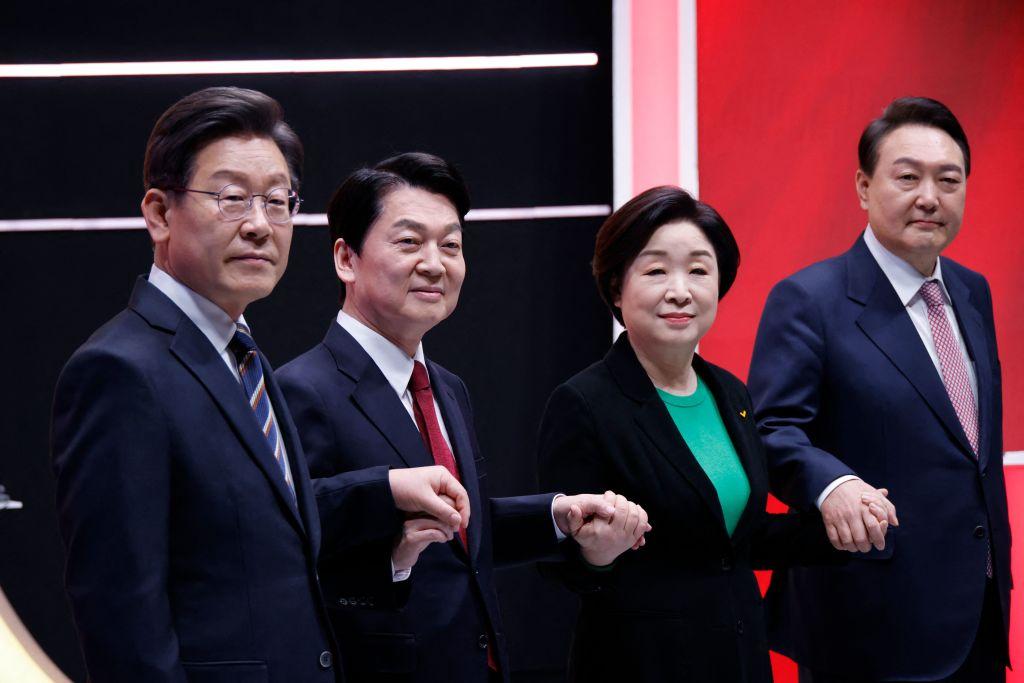With South Korea’s presidential election just a week away, the country’s approach toward the U.S.-China rivalry has become the center topic for debate. Poll numbers in the final days appear to favor the conservative candidate seeking to enhance ties with the United States.
The 2022 South Korean presidential election is scheduled for Mar. 9. The four candidates are Lee Jae-myung of the ruling Democratic Party (DP), Yoon Seok-youl of the main opposition conservative People Power Party (PPP), Ahn Cheol-soo of the minor opposition People’s Party, and Sim Sang-jung of the progressive Justice Party.





